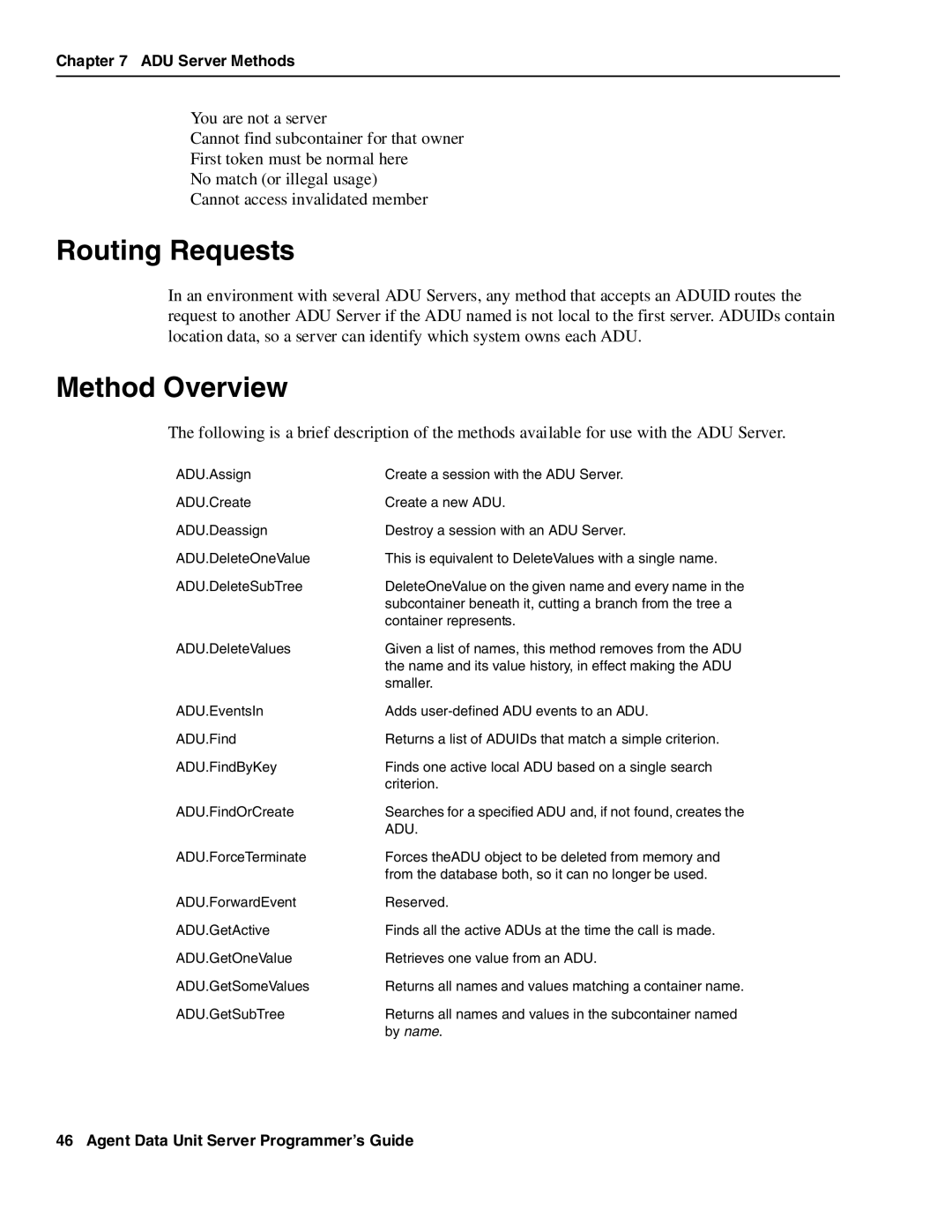Chapter 7 ADU Server Methods
You are not a server
Cannot find subcontainer for that owner
First token must be normal here
No match (or illegal usage)
Cannot access invalidated member
Routing Requests
In an environment with several ADU Servers, any method that accepts an ADUID routes the request to another ADU Server if the ADU named is not local to the first server. ADUIDs contain location data, so a server can identify which system owns each ADU.
Method Overview
The following is a brief description of the methods available for use with the ADU Server.
ADU.Assign | Create a session with the ADU Server. |
ADU.Create | Create a new ADU. |
ADU.Deassign | Destroy a session with an ADU Server. |
ADU.DeleteOneValue | This is equivalent to DeleteValues with a single name. |
ADU.DeleteSubTree | DeleteOneValue on the given name and every name in the |
| subcontainer beneath it, cutting a branch from the tree a |
| container represents. |
ADU.DeleteValues | Given a list of names, this method removes from the ADU |
| the name and its value history, in effect making the ADU |
| smaller. |
ADU.EventsIn | Adds |
ADU.Find | Returns a list of ADUIDs that match a simple criterion. |
ADU.FindByKey | Finds one active local ADU based on a single search |
| criterion. |
ADU.FindOrCreate | Searches for a specified ADU and, if not found, creates the |
| ADU. |
ADU.ForceTerminate | Forces theADU object to be deleted from memory and |
| from the database both, so it can no longer be used. |
ADU.ForwardEvent | Reserved. |
ADU.GetActive | Finds all the active ADUs at the time the call is made. |
ADU.GetOneValue | Retrieves one value from an ADU. |
ADU.GetSomeValues | Returns all names and values matching a container name. |
ADU.GetSubTree | Returns all names and values in the subcontainer named |
| by name. |
